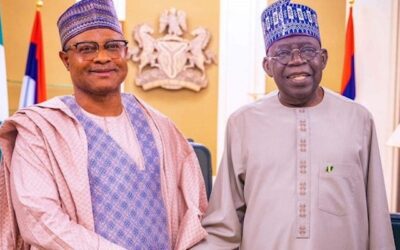Guinea-Bissau on Edge as Embaló Alleges Arrest in Suspected Military Putsch

Heavy gunfire shook parts of Guinea-Bissau’s capital, Bissau, on Wednesday, November 26, 2025, after President Umaro Sissoco Embaló said he was briefly taken into custody inside the presidential palace in what he described as a coup attempt.
Speaking to The Africa Report, Embaló said he was “arrested around 1 p.m. inside my office,” adding that the operation took place “without the use of force.” He alleged that the action was led by the Army Chief of Staff, a claim that has intensified speculation of a deepening rift between the presidency and senior military officials.
Reports from regional media said the Armed Forces Chief of Staff, General Biaguê Na Ntan, the Deputy Chief of Staff, General Mamadou Touré, and the Interior Minister, Botché Candé, were also detained. The reported arrests immediately heightened fears of a full-scale confrontation within the country’s already fragile security structure.
Journalists covering the tense post-election developments said the situation deteriorated rapidly around the headquarters of the National Electoral Commission. A reporter quoted by The Africa Report said his team was forced to hide inside the office of the commission’s communication officer while gunshots rang out nearby.
The renewed instability follows Sunday’s presidential election on November 23, 2025, which has produced rival victory claims. Embaló has insisted he won 65 per cent of the vote based on figures from his own tally. His main challenger, Fernando Dias de Costa, has also declared himself the winner.
The conflicting claims emerged ahead of the release of provisional election results expected on Thursday, November 27, 2025, by the electoral commission.
Guinea-Bissau has a long history of political instability, driven largely by strained civil-military relations and repeated power struggles. Embaló, who dissolved parliament in 2022 following prolonged disputes with lawmakers, went into the election as the frontrunner. His position was strengthened after the main opposition party, the African Party for the Independence of Guinea and Cape Verde (PAIGC), and its influential leader, Domingos Simões Pereira, were excluded from the race.
The latest crisis also comes just days after the military, in a statement reported by AFP, announced the arrest of several senior officers over an alleged plot to destabilise the country. That announcement was made a day before the official campaign period opened.


